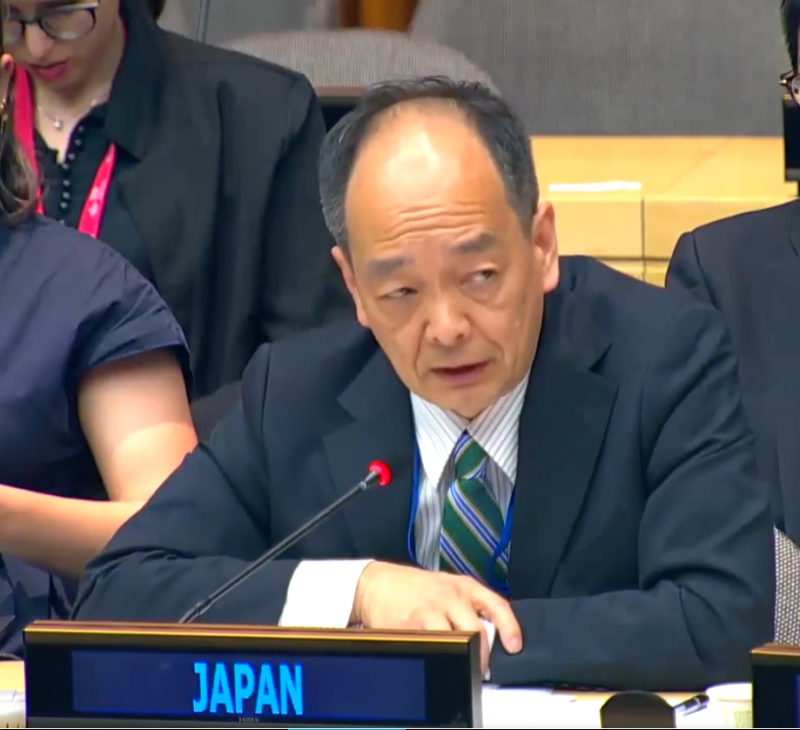Statement by H.E. Ambassador YAMANAKA Osamu, Deputy Permanent Representative of Japan to the United Nations, at the Security Council Arria Formula Meeting on "Stepping up Preventive Action: From Environmental Challenges to Opportunities for Peace"
2024/7/8

(As delivered)
Mr. Chair,
I would like to start by thanking to the Ambassadors of the Republic of Slovenia, the Co-operative Republic of Guyana, the Republic of Korea, and the Republic of Sierra Leone for hosting this important Meeting. I would also like to thank the briefers for their informative and insightful inputs.
Environmental challenges, including climate change, biodiversity loss, the issues on water, food, and forests, as well as conflict, are closely interlinked in complexed ways.
These challenges affect not only vulnerable and developing countries, but also the peace and security of the international community, as an amplifier of global risks and threats. These complex interlinkages should be addressed to prevent further conflicts.
In this regard, I would like to stress the following three points.
Mr. Chair,
First of all, a comprehensive approach, ensuring the HDP nexus, is crucial to tackle these intertwined root-causes. Such a comprehensive approach will not only alleviate vulnerable situations that people face in the short term, but also help to prevent future conflicts in the mid- and long-term perspectives, by building an inclusive and resilient society that is equipped to detect early warning signs and counter challenges.
We would also like to reaffirm the relevance of the WPS Agenda, through which women should participate more actively in decision-making processes, particularly for more inclusiveness and resilience.
With these ideas well in mind, Japan supported the “African initiative for combating desertification to strengthen resilience to climate change in the Sahel and the Horn of Africa” to raise the awareness and strengthen the capabilities of the governments in the region, by providing capacity building, enhancing financial access, and strengthening regional cooperation.
Second, UN bodies, including the Security Council, must strengthen their collaboration with more diverse actors to fully utilize the UN toolbox to implement the comprehensive approach. Such collaboration will help us assess risks and horizon-scan situations.
To convene relevant stakeholders, including Member States, civil society, UN bodies, regional and sub-regional organizations, IFIs, the Peacebuilding Commission should be better utilized as an advisory body to the Council to serve as a hub.
Moreover, the Resident Coordinators (RCs) and the Peace and Development Advisors (PDAs) could play more proactive roles for the UN system, strengthening coordination and synergies on the ground.
Finally, the UN peace operations themselves need to “do no harm” in the environmental perspective as well. In this regard, Japan aligns itself with the statement by Italy on behalf of the Group of Friends for Leading on Environmental Management in the Field (LEAF).
Mr. Chair,
Sustainable peace cannot be achieved without establishing a society resilient to environmental challenges. Japan will continue to make efforts in this regard, toward achieving a world in which "human dignity" and “human security” are protected and enhanced.
I thank you for your attentions.
